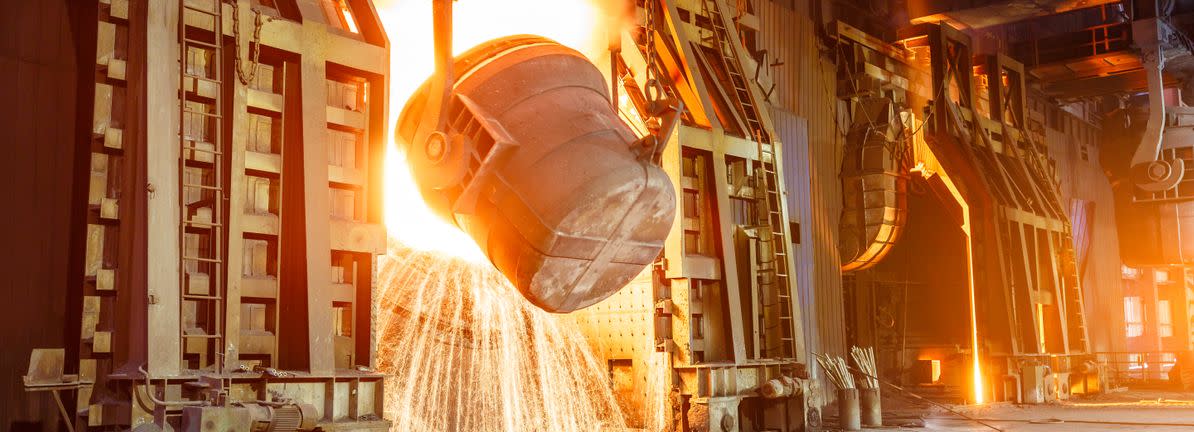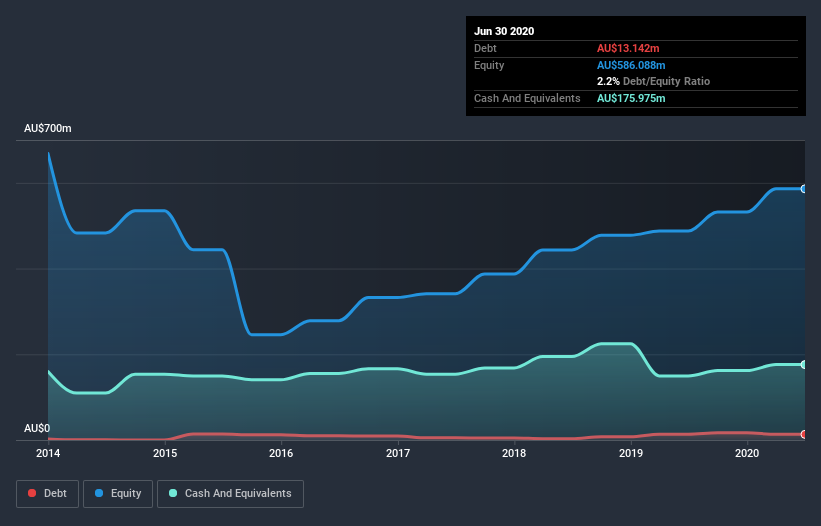We Think Grange Resources (ASX:GRR) Can Manage Its Debt With Ease

Some say volatility, rather than debt, is the best way to think about risk as an investor, but Warren Buffett famously said that 'Volatility is far from synonymous with risk.' So it seems the smart money knows that debt - which is usually involved in bankruptcies - is a very important factor, when you assess how risky a company is. As with many other companies Grange Resources Limited (ASX:GRR) makes use of debt. But the real question is whether this debt is making the company risky.
When Is Debt Dangerous?
Generally speaking, debt only becomes a real problem when a company can't easily pay it off, either by raising capital or with its own cash flow. Part and parcel of capitalism is the process of 'creative destruction' where failed businesses are mercilessly liquidated by their bankers. However, a more usual (but still expensive) situation is where a company must dilute shareholders at a cheap share price simply to get debt under control. Of course, the upside of debt is that it often represents cheap capital, especially when it replaces dilution in a company with the ability to reinvest at high rates of return. The first thing to do when considering how much debt a business uses is to look at its cash and debt together.
See our latest analysis for Grange Resources
What Is Grange Resources's Net Debt?
As you can see below, Grange Resources had AU$13.1m of debt, at June 2020, which is about the same as the year before. You can click the chart for greater detail. However, it does have AU$176.0m in cash offsetting this, leading to net cash of AU$162.8m.
A Look At Grange Resources's Liabilities
Zooming in on the latest balance sheet data, we can see that Grange Resources had liabilities of AU$69.6m due within 12 months and liabilities of AU$76.3m due beyond that. Offsetting this, it had AU$176.0m in cash and AU$54.4m in receivables that were due within 12 months. So it can boast AU$84.5m more liquid assets than total liabilities.
It's good to see that Grange Resources has plenty of liquidity on its balance sheet, suggesting conservative management of liabilities. Given it has easily adequate short term liquidity, we don't think it will have any issues with its lenders. Simply put, the fact that Grange Resources has more cash than debt is arguably a good indication that it can manage its debt safely.
Better yet, Grange Resources grew its EBIT by 103% last year, which is an impressive improvement. That boost will make it even easier to pay down debt going forward. When analysing debt levels, the balance sheet is the obvious place to start. But it is Grange Resources's earnings that will influence how the balance sheet holds up in the future. So when considering debt, it's definitely worth looking at the earnings trend. Click here for an interactive snapshot.
But our final consideration is also important, because a company cannot pay debt with paper profits; it needs cold hard cash. While Grange Resources has net cash on its balance sheet, it's still worth taking a look at its ability to convert earnings before interest and tax (EBIT) to free cash flow, to help us understand how quickly it is building (or eroding) that cash balance. In the last three years, Grange Resources's free cash flow amounted to 40% of its EBIT, less than we'd expect. That's not great, when it comes to paying down debt.
Summing up
While it is always sensible to investigate a company's debt, in this case Grange Resources has AU$162.8m in net cash and a decent-looking balance sheet. And it impressed us with its EBIT growth of 103% over the last year. So we don't think Grange Resources's use of debt is risky. When analysing debt levels, the balance sheet is the obvious place to start. But ultimately, every company can contain risks that exist outside of the balance sheet. To that end, you should be aware of the 1 warning sign we've spotted with Grange Resources .
If, after all that, you're more interested in a fast growing company with a rock-solid balance sheet, then check out our list of net cash growth stocks without delay.
This article by Simply Wall St is general in nature. It does not constitute a recommendation to buy or sell any stock, and does not take account of your objectives, or your financial situation. We aim to bring you long-term focused analysis driven by fundamental data. Note that our analysis may not factor in the latest price-sensitive company announcements or qualitative material. Simply Wall St has no position in any stocks mentioned.
Have feedback on this article? Concerned about the content? Get in touch with us directly. Alternatively, email editorial-team@simplywallst.com.

 Yahoo News
Yahoo News 

